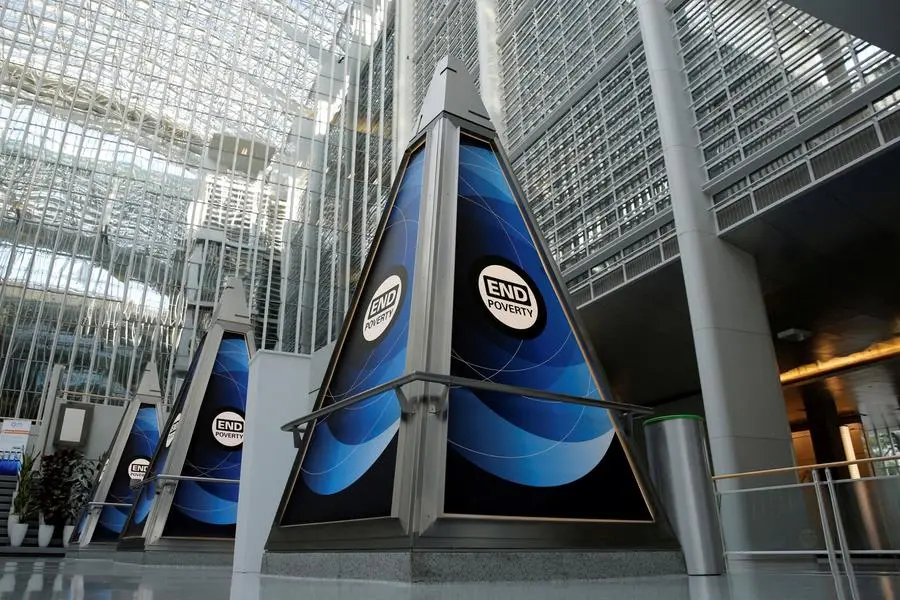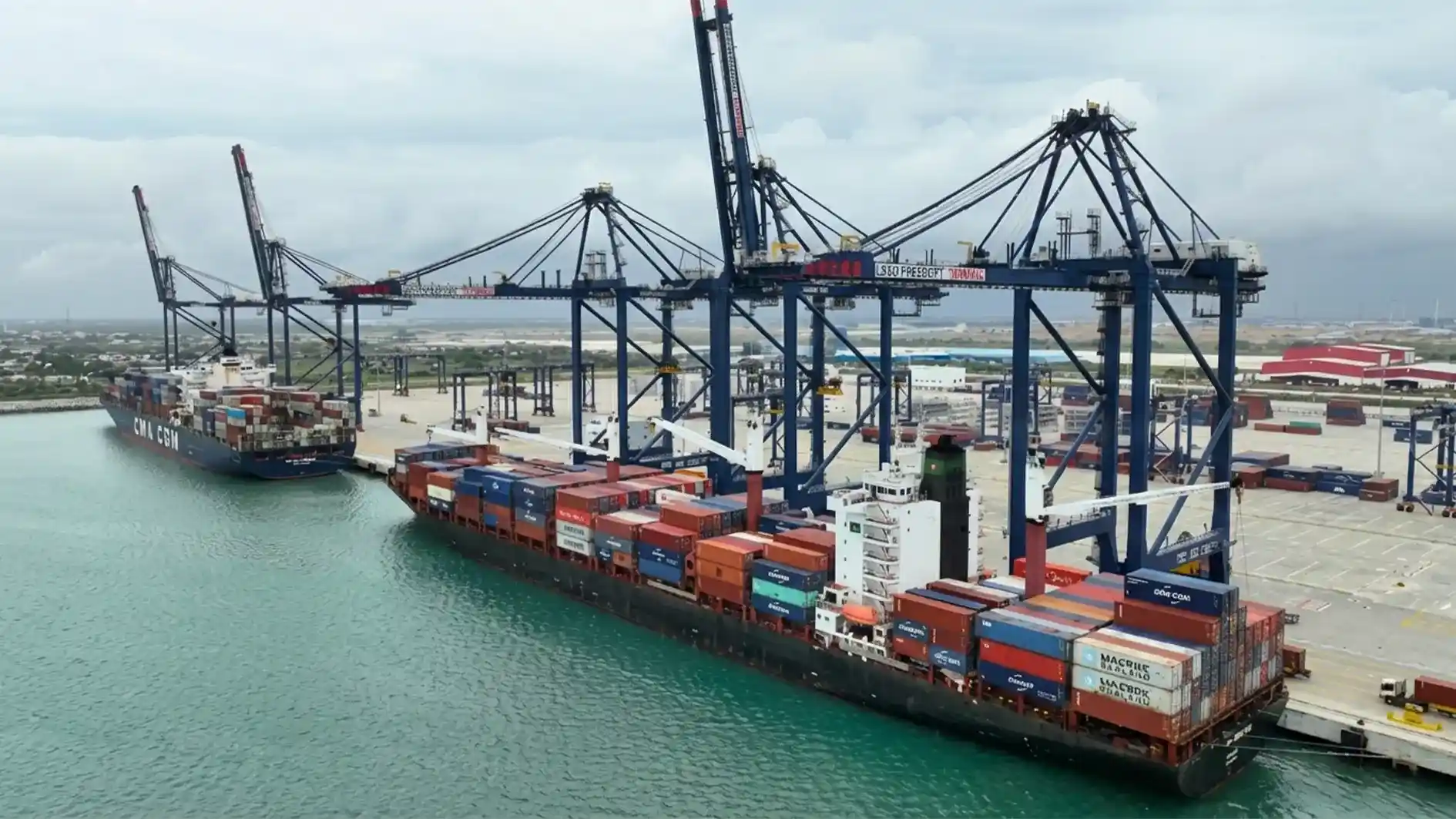In a landmark move to enhance its global presence and responsiveness, the World Bank has announced a major restructuring initiative that will see its regional management teams relocated from Washington, D.C., to various hubs across the world. The move is part of a broader strategy to improve efficiency, facilitate quicker decision-making, and bring senior leadership closer to the communities they serve.
A New Era for the World Bank’s Global Operations
This latest step marks a significant shift in how the World Bank operates, with the institution stating that for the first time in its history, two-thirds of its operational staff will be based in the regions they oversee. This approach aligns with the Bank’s long-term efforts to decentralize its functions, ensuring that operations are more effective and directly tailored to the needs of recipient countries.
According to Anna Bjerde, the World Bank’s Managing Director of Operations, the decentralization process is aimed at simplifying access for client nations while ensuring that decision-making is streamlined at the regional level. “Our goal is to make our operations more agile and responsive by placing senior leadership closer to the people and countries we serve,” Bjerde said.
The restructuring will impact key divisions of the World Bank, including:
- The International Bank for Reconstruction and Development (IBRD), which provides financing to middle-income and creditworthy low-income countries.
- The International Development Association (IDA), the division responsible for supporting the world’s poorest countries with concessional loans and grants.
- The International Finance Corporation (IFC), which focuses on private sector development in emerging markets.
This move follows extensive internal discussions and has received broad support from members of the World Bank’s executive board, who were briefed on the plan in recent weeks.
A Vision Driven by Ajay Banga
The push for decentralization has been a priority for World Bank President Ajay Banga since he took over the role in June 2023. Banga, who previously served as CEO of Mastercard, has emphasized the importance of bringing the institution closer to the people it serves. His leadership has focused on ensuring that the Bank operates with greater agility, particularly in regions experiencing rapid economic and social changes.
Banga’s approach to restructuring is not just about relocating staff; it is also about transforming the way the World Bank interacts with its partners. By placing key decision-makers in overseas hubs, the Bank aims to foster stronger relationships with governments, private sector players, and development organizations on the ground.
Why Decentralization Matters for Global Development
The move to decentralize is expected to have a profound impact on the effectiveness of World Bank projects. By embedding leadership in key regions, the Bank hopes to improve the speed at which it responds to crises, facilitates financing, and implements development programs.
There are several reasons why this decentralization is seen as a necessary step:
- Proximity to Client Countries
The World Bank works with over 180 countries, many of which are in the Global South. Having regional offices closer to these nations allows for faster decision-making, reduces bureaucratic delays, and improves collaboration between the Bank and local governments. - Enhancing Responsiveness to Regional Crises
The COVID-19 pandemic exposed weaknesses in global institutions’ ability to respond quickly to emergencies. By decentralizing, the World Bank can strengthen its capacity to react to health crises, natural disasters, and economic shocks in a timelier manner. - Improved Stakeholder Engagement
Local engagement is a critical aspect of development work. By positioning senior leadership in key hubs, the World Bank can work more closely with national governments, NGOs, and private sector partners to develop and implement effective policies. - More Efficient Use of Resources
Operating out of Washington has traditionally required frequent travel for regional executives and staff, incurring significant costs. By shifting to regional offices, the Bank can reduce travel expenses and redirect those funds toward impactful projects. - Strengthening Regional Leadership
Decentralization is also a way to empower regional leaders within the World Bank structure. Having decision-makers on the ground allows for greater accountability, efficiency, and a deeper understanding of country-specific challenges.
Where Will the New Hubs Be Located?
While final decisions on hub locations are still being made, sources familiar with the plan have indicated that Dubai, Singapore, and Nairobi are among the top contenders. These cities offer strategic advantages in terms of accessibility, connectivity, and proximity to key client countries.
- Dubai: A major global business hub with excellent infrastructure, Dubai provides easy access to the Middle East and parts of Africa and South Asia. Its stability and well-developed financial sector make it an attractive choice.
- Singapore: As a leading financial center in Asia, Singapore offers a well-connected hub for operations in East Asia and the Pacific. It is also known for its strong governance and business-friendly environment.
- Nairobi: The capital of Kenya is a growing economic powerhouse in Africa, making it an ideal location for overseeing the continent’s development programs. Nairobi has long been a regional center for international organizations and NGOs.
While the Latin America and Caribbean team will remain in Washington, other regional operations are expected to relocate to these international hubs over the next two years. The first moves could take place as early as May 2025.
Decentralization in the Context of Global Development Trends
The World Bank’s decentralization efforts align with broader global trends in international development. Other multilateral institutions, such as the United Nations and the African Development Bank, have also taken steps to regionalize their operations in recent years. This shift reflects a growing consensus that centralized, top-down development models are less effective in today’s rapidly changing world.
Moreover, the decentralization process is happening at a time when global financial institutions are under pressure to become more inclusive, adaptive, and accountable. Developing nations have long called for more equitable representation in international financial institutions, arguing that decisions affecting their economies should not be made exclusively in Washington or other Western capitals. By moving key operational units to developing regions, the World Bank is addressing some of these concerns and reinforcing its commitment to a more democratic and decentralized approach to development finance.
Potential Challenges and Risks
While decentralization is widely seen as a positive step, it is not without challenges. Some of the key risks include:
- Coordination Difficulties: With senior leadership spread across multiple global hubs, maintaining cohesive communication and decision-making processes could become more complex.
- Transition Period Adjustments: The shift from Washington-based management to regional hubs will require significant logistical adjustments, including staff relocations, infrastructure investments, and new operational frameworks.
- Security and Political Risks: Some of the chosen hub locations, particularly in Africa and the Middle East, may present security risks or political instability that could impact operations.
- Staff Adaptation: Employees who have been based in Washington for years may face difficulties adjusting to new environments. The Bank will need to provide adequate support for staff relocations.
Conclusion: A Transformative Step for the World Bank
Despite the potential challenges, the World Bank’s decision to decentralize its operations represents a bold and forward-thinking move that could significantly improve its effectiveness as a global development institution. By placing senior leadership in regions where their presence is most needed, the Bank is positioning itself to be more responsive, efficient, and impactful in addressing global development challenges.
The initiative aligns with the vision of World Bank President Ajay Banga, who has been vocal about the need for a more dynamic and locally-driven approach to development finance. As the restructuring unfolds over the next two years, it will be closely watched by governments, international organizations, and development experts around the world.
With the first phases of decentralization expected to begin in May 2025, this initiative could set a new standard for how international financial institutions operate, making them more accessible, transparent, and accountable to the countries they serve.
Ready to take your career to the next level? Join our dynamic courses: ACCA, HESI A2, ATI TEAS 7 , HESI EXIT , NCLEX – RN and NCLEX – PN, Financial Literacy!🌟 Dive into a world of opportunities and empower yourself for success. Explore more at Serrari Ed and start your exciting journey today! ✨
photo source: Google
By: Montel Kamau
Serrari Financial Analyst
19th February, 2025
Article, Financial and News Disclaimer
The Value of a Financial Advisor
While this article offers valuable insights, it is essential to recognize that personal finance can be highly complex and unique to each individual. A financial advisor provides professional expertise and personalized guidance to help you make well-informed decisions tailored to your specific circumstances and goals.
Beyond offering knowledge, a financial advisor serves as a trusted partner to help you stay disciplined, avoid common pitfalls, and remain focused on your long-term objectives. Their perspective and experience can complement your own efforts, enhancing your financial well-being and ensuring a more confident approach to managing your finances.
Disclaimer: This article is for informational purposes only and does not constitute financial advice. Readers are encouraged to consult a licensed financial advisor to obtain guidance specific to their financial situation.
Article and News Disclaimer
The information provided on www.serrarigroup.com is for general informational purposes only. While we strive to keep the information up to date and accurate, we make no representations or warranties of any kind, express or implied, about the completeness, accuracy, reliability, suitability, or availability with respect to the website or the information, products, services, or related graphics contained on the website for any purpose. Any reliance you place on such information is therefore strictly at your own risk.
www.serrarigroup.com is not responsible for any errors or omissions, or for the results obtained from the use of this information. All information on the website is provided on an as-is basis, with no guarantee of completeness, accuracy, timeliness, or of the results obtained from the use of this information, and without warranty of any kind, express or implied, including but not limited to warranties of performance, merchantability, and fitness for a particular purpose.
In no event will www.serrarigroup.com be liable to you or anyone else for any decision made or action taken in reliance on the information provided on the website or for any consequential, special, or similar damages, even if advised of the possibility of such damages.
The articles, news, and information presented on www.serrarigroup.com reflect the opinions of the respective authors and contributors and do not necessarily represent the views of the website or its management. Any views or opinions expressed are solely those of the individual authors and do not represent the website's views or opinions as a whole.
The content on www.serrarigroup.com may include links to external websites, which are provided for convenience and informational purposes only. We have no control over the nature, content, and availability of those sites. The inclusion of any links does not necessarily imply a recommendation or endorsement of the views expressed within them.
Every effort is made to keep the website up and running smoothly. However, www.serrarigroup.com takes no responsibility for, and will not be liable for, the website being temporarily unavailable due to technical issues beyond our control.
Please note that laws, regulations, and information can change rapidly, and we advise you to conduct further research and seek professional advice when necessary.
By using www.serrarigroup.com, you agree to this disclaimer and its terms. If you do not agree with this disclaimer, please do not use the website.
www.serrarigroup.com, reserves the right to update, modify, or remove any part of this disclaimer without prior notice. It is your responsibility to review this disclaimer periodically for changes.
Serrari Group 2025
















